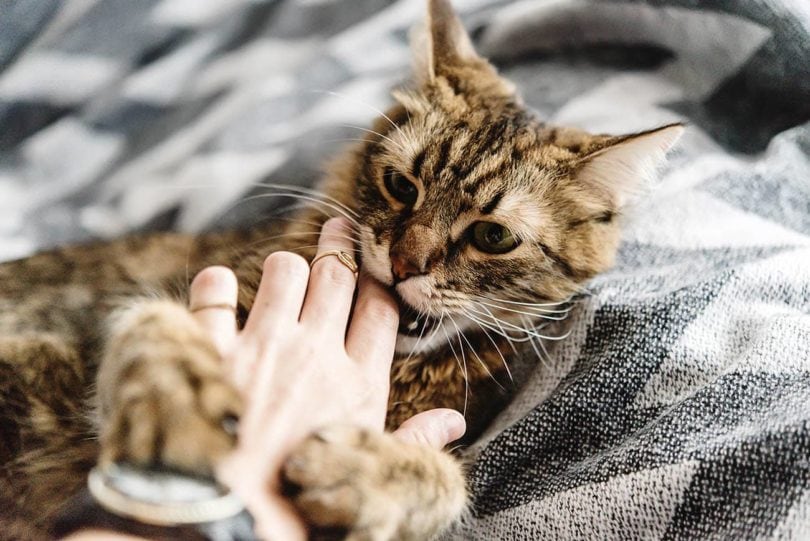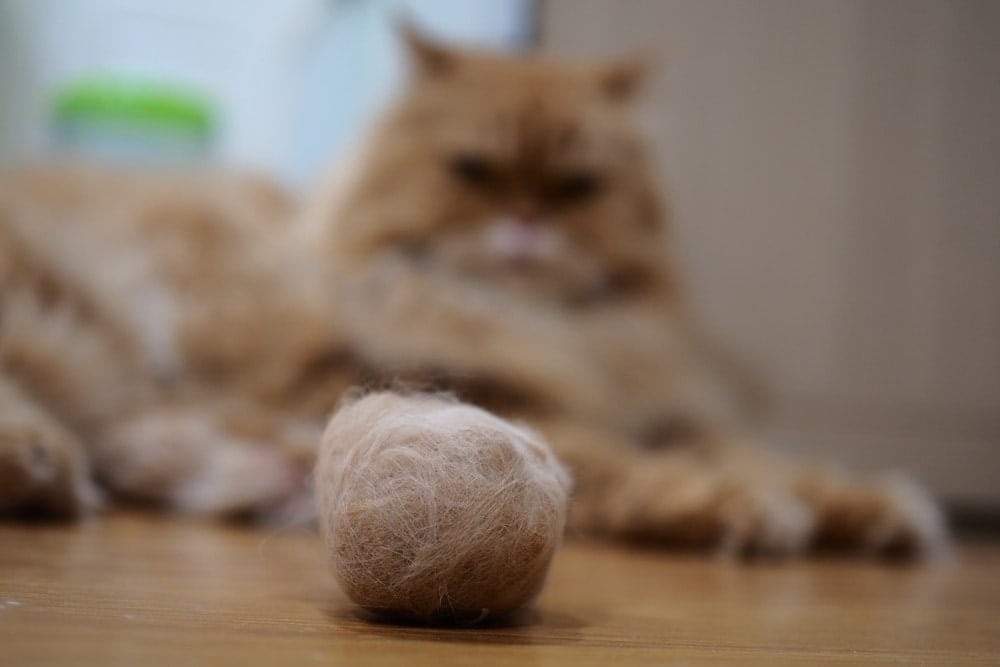Homemade Flea Spray for Cats: 6 Vet-Reviewed Recipes (With Pictures)
Updated on
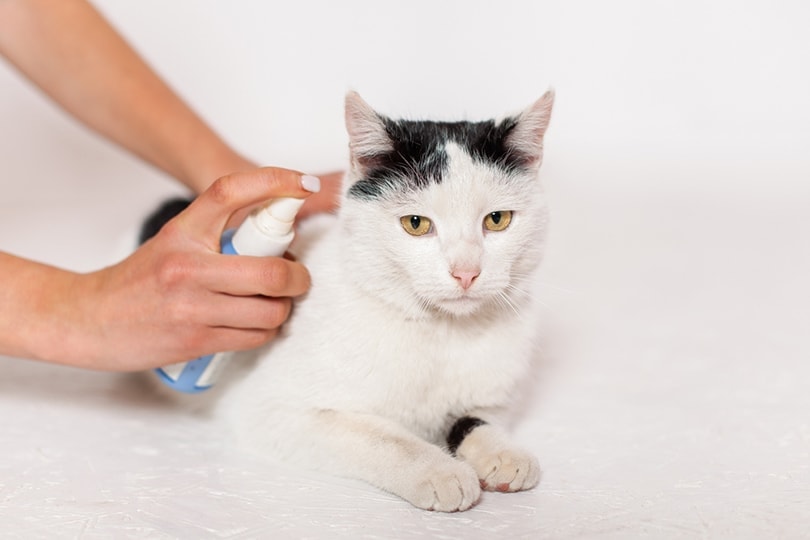
Cats are cute and cuddly, but the fleas that they can harbor are nightmarish. Many medications on the market can be used to help keep fleas away, but you might want to try a natural approach instead. These medications can also be expensive, especially since they must be utilized regularly throughout the year.
Luckily, you can make your own homemade flea spray for your cat at home without having to know anything about chemistry. We put together a list of interesting options that require various ingredients you may already have in your kitchen or bathroom. Here are six effective yet easy-to-make cat flea sprays that you and your cat are sure to appreciate.
The 6 Homemade Flea Spray Recipes for Cats
1. Flea and Tick Repellent Spray for Cats
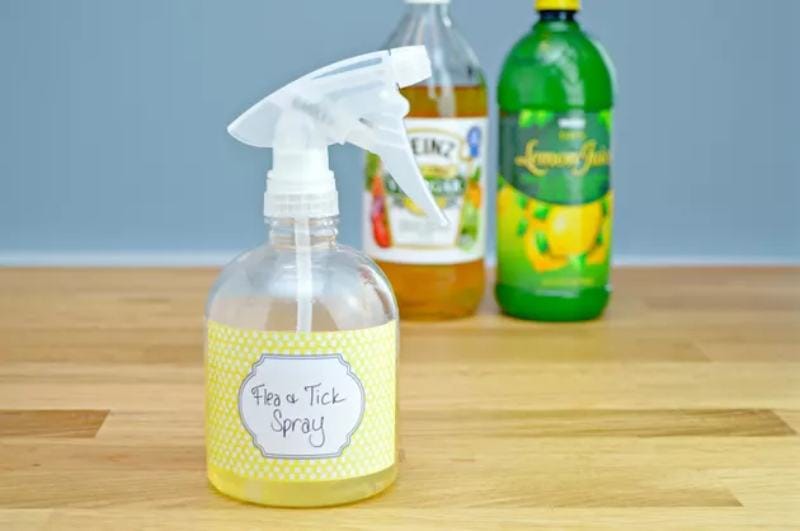
Here is a basic yet effective homemade flea and tick repellent spray for cats that won’t cost you a fortune to put together. You will need distilled water rather than the stuff that comes from your tap. You will also need apple cider vinegar and lemon juice to complete the recipe. You should be able to find everything that you need in your own home.
2. Garlic Yard Spray for Cats
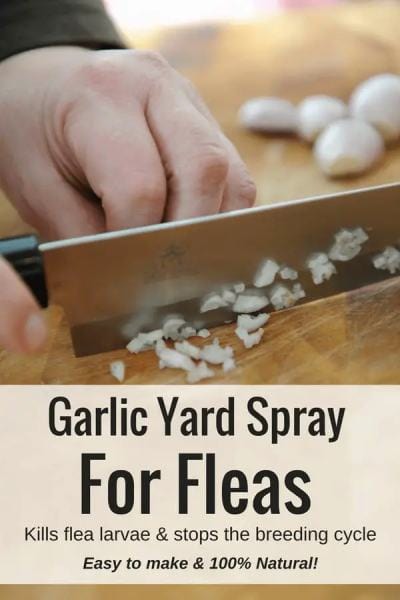
This is not a cat flea spray that should be applied directly to your cat. Instead, it is designed for use outdoors. Wherever fleas are living in your yard, you can treat the area with this spray to kill the fleas and their eggs. This will help keep fleas from hitching rides on your cat into your home, where they can fester in your carpets and furnishings. However, please take note that garlic is very toxic to cats if ingested.
Your cat should not be allowed to visit the treated area for several days after application to keep them safe; you do not want them to ingest it when grooming, so it is recommended to rinse the area well before allowing your cat out.
3. Homemade Flea Killing Spray and Shampoo for Cats
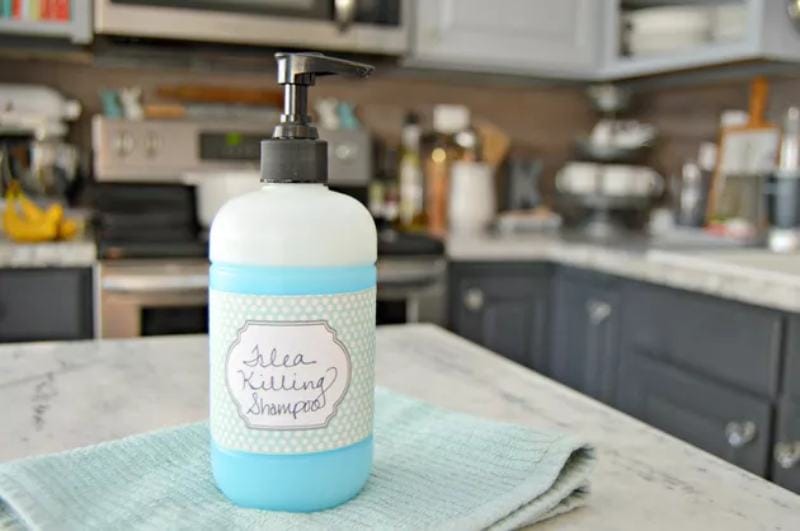
You can use this flea-repellent recipe as a shampoo and as a spray to help keep your cat free of flea infestations. The recipe calls for soap, so when using it as a spray, only a little at a time is needed. The spray shouldn’t be used where your cat could lick it off. The secret ingredient that makes this recipe so powerful is white vinegar, which is inexpensive and easy to source.
4. DIY Flea and Tick Remedy for Cats

With the help of just a few basic ingredients from your kitchen, you can quickly and easily make this homemade flea and tick remedy for your kitty. Not only can you use this spray on your cat, but you can also use it on furniture, bedding, carpets, and corners of your home to ensure that fleas don’t have a chance to propagate.
However, please be mindful that the amount of sodium (from the salt) in this recipe is potentially toxic to cats if ingested. This problem arises when cats groom. You must keep your cat away as you allow the spray to sit for 30 minutes—then vacuum and/or rinse very well.
5. Simple Homemade Flea and Tick Spray for Cats
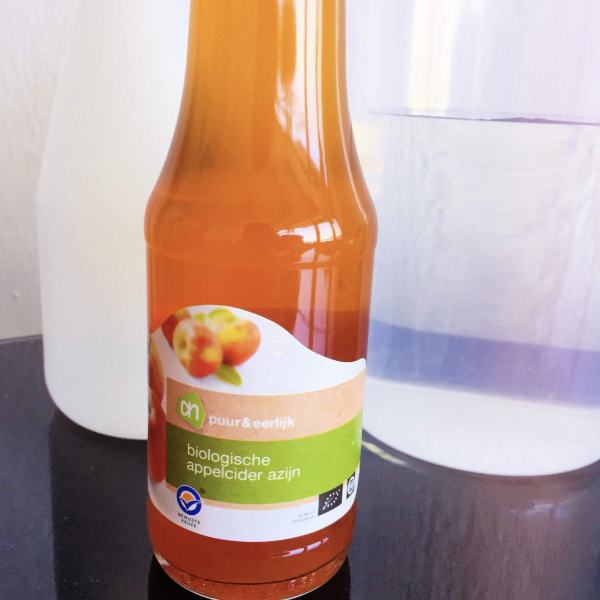
This is more of a guide than a recipe because you only need water and apple cider vinegar to make the spray. But you must use the right techniques when combining your ingredients for the best results, and this guide will help you get the job done right. The smell of apple cider vinegar can be overwhelming when sprayed in the house, so it is best to use this spray outside.
6. Homemade Lemon Flea Spray for Cats
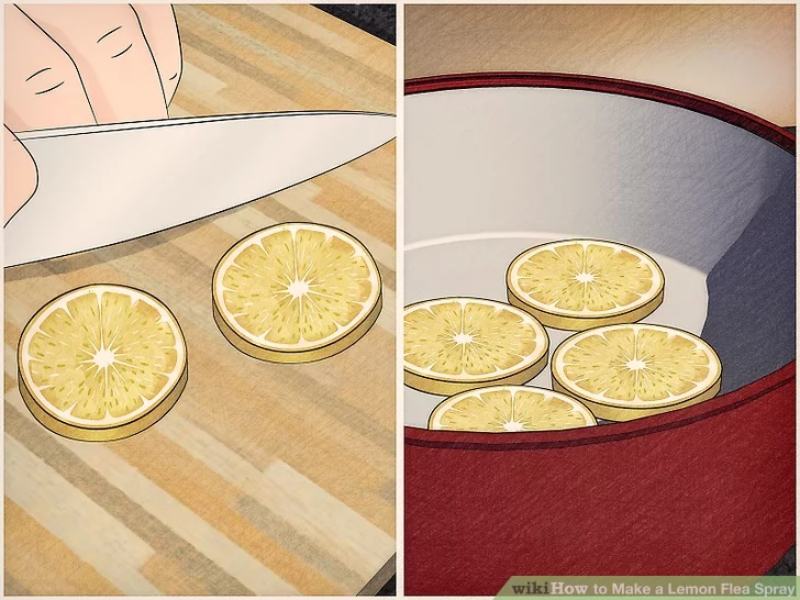
This is the simplest DIY flea spray recipe to make if you have limited ingredients in your kitchen and don’t want to shop for anything more. All you need are lemons, vinegar, and water. This recipe involves juicing and boiling the lemons, then steeping the lemons for up to 8 hours, so be prepared to wait. It is a good idea to make a double batch, so you don’t have to spend time making it so often.
Things to Consider When Choosing a Homemade Flea Spray for Your Cat
It can be tough to determine which homemade flea spray to choose for your cat, especially if you don’t have any experience with DIY flea-repellent products. The first thing to recognize is that your first DIY recipe may not work as well as you would like it to. So, be prepared to try multiple recipe options before finding one that you like the best in terms of effectiveness, ease of making, and scent.
Here are a couple of things to consider when choosing a homemade flea spray to try.
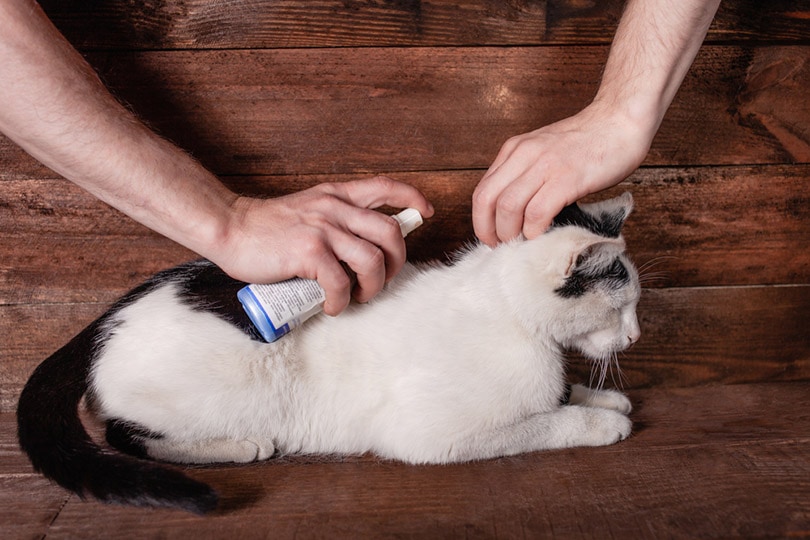
Take Caution When Using New Ingredients
Just because an ingredient is deemed safe for cats does not mean that it will be safe for your cat. Some cats have allergic reactions to certain ingredients—even apple cider vinegar—when most other cats do not. So, always start slowly and spray a new recipe only on one item in your home or only on one small area of your cat to see how things play out.
If your cat shows any signs of an allergic reaction, you should stop using the product immediately and contact your veterinarian. If your cat seems okay with the treatment, go ahead and use more. After a day or two of no allergic signs, you should feel free to use the flea-repellent spray as necessary.
Conclusion
Getting rid of fleas can be a big pain, especially when you want to stay away from traditional treatment options. However, with a little bit of time and research, you can find many natural ways to get rid of or at the very least, control flea infestations on your cat and in your home. The homemade flea-repellent sprays featured here should put you on the right track toward meeting your flea-fighting goals.
See also:
- Cat Lice vs Fleas: What Does My Cat Have? What Are the Differences
- 5 Home Remedies to Stop a Cat from Licking a Wound (Vet Approved)
Featured Image Credit: Vaillery, Shutterstock




